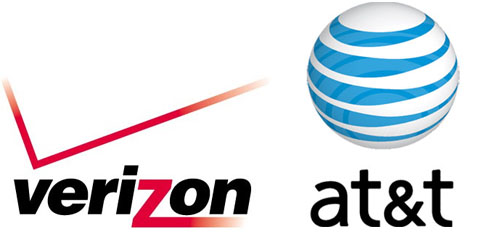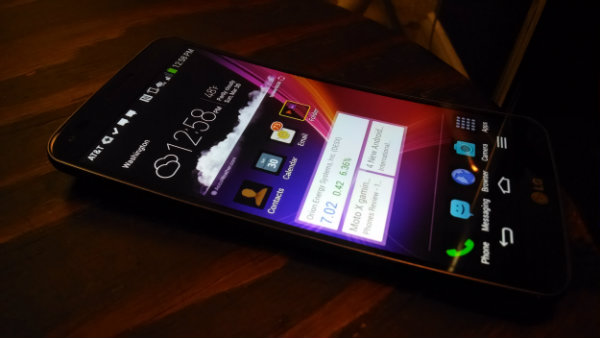Data is the bargaining chip of cellular networks this week, as two of the top networks in the country announced unlimited data plans to smartphone customers. AT&T and Verizon have joined others, including Sprint and T-Mobile, with interesting price comparisons.
AT&T‘s offers an individual deal (AT&T Unlimited Choice) as low as $60/mo (minus $5 autopay costs/taxes/extras) with unlimited data/talk/text and throttled speeds after 22GB of use, along with throttled video streams capped at 1.5Mbs. Their more premium offer is for $90/mo with HD streaming, a 10GB mobile hotspot, a deal on DirecTV services, and the same 22GB throttling.
For use of multiple lines, AT&T’s Unlimited Plus costs $185 for four lines with the same throttling restrictions. That’s not so bad for a family plan when split four ways.
But how does that stack up to Verizon?
Verizon’s cheapest individual unlimited plan also goes for $60/mo with unlimited data/talk/text (and international text), unlimited HD streaming in any video quality, 10GB of mobile hotspot data included with no extra charge, Stream Pass sports and TV streaming service via Go90 (no data cost), and some other services including the ability to make calls to and from Mexico and Canada.
Of course, like AT&T, Verizon has some extras: Discounts for auto-pay/paper-free billing, and additional costs for line access, and regular taxes & fees. Similarly, surpassing 22GB will have customers’ data speeds throttled. And after 10GB of hotspot use, you’ll be reduced to 3G speeds on that as well.
For more than one line, Verizon’s “Verizon Plan Unlimited” runs $100/mo with the same extras, but you can add a family of four lines for $180/mo. Of course, if you’re already a customer, it’ll cost $80-85/mo at minimum individually. Again, taxes/fees/line access costs are not included in advertised pricing.
And all of this unlimited data talk comes with a bit of irony. The new plans are being announced on the same networks that forced out grandfathered accounts with free data plans pre-2012 with fine print policies. So while these “deals” may save customers money compared to the data overage fees you’ve experienced recently (reminiscent of the bank overdraft fees), this new offering is not merely about competition. It’s about the fact these cellular networks finally have the bandwidth and 4G infrastructure to support this offering.
In the end, the costs of these plans are fairly similar, but Verizon’s offering of unlimited HD-streaming might be more attractive to some than others. Of course, if you burn through your first 22GB of data that much faster streaming HD content, it may not even matter.
Thoughts of your own? Let us know in the comments.
Source: Verizon and AT&T


